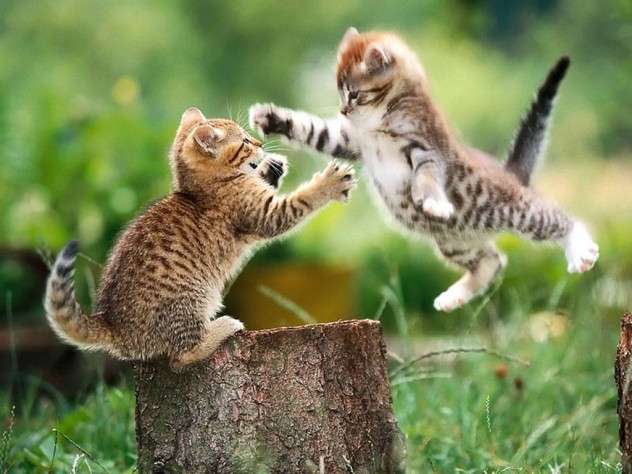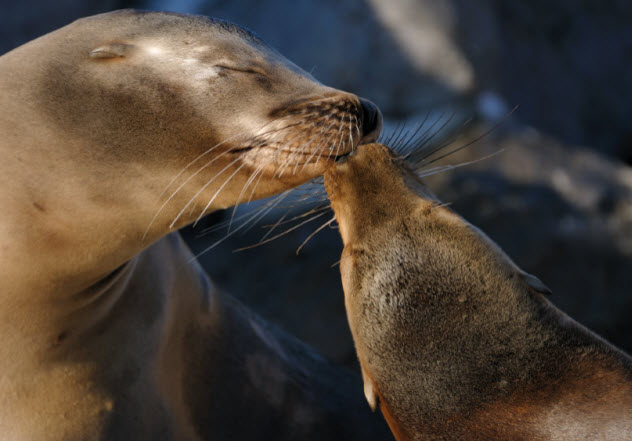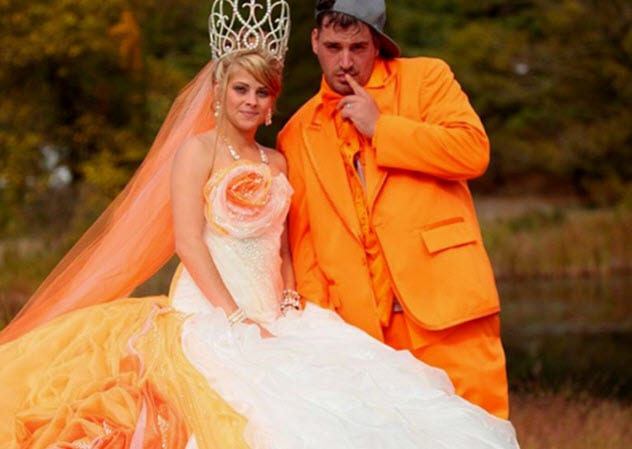Hello ladies and gents this is the Viking telling you that today we are talking about
Really Good Things About 2020
Let’s face it: 2020 has been to years what “Cats” was to cinema: a costly, painful, interminably long disaster. And at least Cats featured the reassuring presence of Dame Judy Dench, albeit as a ridiculous, disturbing half-feline version of herself.But before burying 2020 alongside Cats in history’s letterbox, there are some bright spots to acknowledge amidst a mostly dark year. Here are ten positives to salvage from a year that can’t end quickly enough.
Pet Adoptions Have Increased Dramatically

COVID-19 hasn’t affected all species the same. For prospective pets, more housebound homo sapiens means more homes for in-need animals, particularly dogs and cats. The result is good news whose benefactors will long outlive the pandemic; in Green Bay, Wisconsin, the aptly-named Happily Ever After Animal Sanctuary has seen a 30% increase in adoptions since the inception of coronavirus-caused lockdowns.
Similar success stories have played out throughout Europe and the UK and, in Australia, many shelters have been completely emptied, creating months-long adoption waiting lists. While certainly inconvenient for home-confined humans seeking a new four-legged family member, this is great news for cats and dogs finding good homes at unprecedented rates.Dogs and cats are in such demand that even “imported” pets are being placed expediently.
For example, The Sato Project, which rescues strays from Puerto Rico’s notorious Dead Dog Beach, has upped the freight and frequency of its Freedom Flights to the US mainland, where dogs find their forever families. “Sato” is Spanish slang for “street dog” – and the shortage is great news for the hundreds of thousands of homeless dogs roaming the humid, tick-infested Caribbean island.
The pet industry also has surged, an economic bright spot during what for many sectors has been an incredibly tough year. Companies that supply pet products are seeing soaring sales for food, leashes, collars and – a nod to new puppy housebreaking – doggy diapers.
Wild Animals are Faring as Well as Domesticated Ones

The next time 2020 gets you down, remember one thing: Wild humpback whales are gleefully singing off the coast of Alaska.Each summer, coastal Alaska is visited by well over a million tourists, who whale watch and glacier gaze from countless cruise ships – which, for the record, were floating petri dishes well before COVID-19. The annual inundation nearly triples the state’s population of about 750,000.
Once the pandemic hit, that number effectively dropped to zero, and scores of musically gifted humpbacks have written feel-good summer hits about their newfound peace.“It’s the first time in human history that we’ve had the technological ability to listen to these whales in a meaningful way without us interfering,” said Dr Michelle Fournet, director of the Sound Science Research Collective.
Back on terra firma, many species are enjoying some long-limited elbow room. Just weeks into widespread lockdowns, sika deer began roaming outside their normal habitat in Nara, Japan, and wild turkeys started congregating in a park in Oakland, California. Jackals in Tel Aviv, goats in Istanbul, and even a land-lubbin’ sea lion near Buenos Aires have all reveled in our retreat from the landscape.
Eloping is Making a Comeback

One of 2020’s crowning achievements has been the drastic, rapid decrease in conventional weddings. If there was one large gathering mainstay that seriously needed a disruptive force, it was weddings; it took the worst of circumstances to spare us all from the Best Man and Maid of Honor drunkenly bombing as you stare awkwardly from a table where you neither know anyone nor care to. Many, if not most, people hate weddings, viewing nuptial invitations as embroidered harbingers of obligatory check-writing and boredom.
Hell, even the bride and groom hate what the wedding does to them leading up to the big day, as a sacred event that should be about love is soured into an expensive, obsessive, neurotic chore. 2020 has given us the best excuse ever to not plan large weddings and not attend them. Just check the box on the RSVP marked “Sorry, I do not wish to die alone on a ventilator during your honeymoon.” Safety first has put long-overdone mass matrimonial gatherings last – a refreshing reprioritizing.
A recent Wall Street Journal article discusses another COVID-related issue that trends toward eloping: what for many self-important engaged couples is some much-needed perspective. A couple featured in the piece canceled their 150-person ceremony to instead marry with no one other than their dog in attendance; before friends and family via FaceTime, they even served as their own officiants. “Amid a global pandemic,” said the bride, “a lavish wedding really just didn’t feel important anymore.” Best. Wedding speech. Ever.
Divorces Are Rising, Too

From March through June 2020, the number of people seeking divorces was 34 percent higher compared to 2019. At first glance this is bad news, since ending a marriage is nobody’s idea of fun.As with nearly everything in 2020, a driving force is COVID-19. With couples cooped up for extended periods of time, some are realizing that the person they married isn’t worth waiting for death to part ways with. Experts contend the combination of stress, unemployment, financial strain, illness and homeschooling children have placed significant strain on relationships.
However, COVID isn’t really the cause of divorce but rather a catalyst. Putting two people who don’t really belong together in close quarters forces them to show each other their true colors. Without offices, friends and other buffers, mismatched marriages are revealed for what they are: pairings of two people better off alone. Hardships bring two people truly meant to be together closer, not further apart.
Most of the couples calling it COVID quits are only accelerating separation rather than having it foist upon them – and in that context, it’s better for people to recognize their failed marriage now than a decade from now, or perhaps never. But what about the children? A prominent legal templates company found that, since the pandemic’s inception, 45% of divorcing couples had children under the age of 18. But per Wendy Paris, author of “Splitopia,” staying together “for the kids” can be worse than divorcing despite them.
Mother Nature is Getting a Much-needed Respite

Mother Nature had been dropping hints lately that something wasn’t quite right with our relationship. She tried increasing the frequency and severity of hurricanes in the Western Hemisphere and, in the Far East, choking off Beijing’s residents for days at a time with putrid air conditions. Then she thought burning a significant portion of California to the ground might work. Yet, we persisted.Finally, a winning strategy for Mother Nature: if mankind can’t be trusted to roam the Earth responsibly, maybe humans should just go to their rooms.
Our air travel, traffic jams and industrial waste have been confiscated and placed in Mrs. Nature’s desk; if we’re good, maybe we can have them back at the end of the school year.With humans tucked away, Mother Nature has shown an incredible ability to bounce back from all the shit we pull under business-as-usual conditions. With social, economic, industrial and urbanization activity significantly diminished, the planet has maximized its long overdue time off with prodigious improvements to air quality, cleaner rivers and less noise pollution.
The uptick in air quality is arguably the biggest boon: the World Health Organization – trusted by every civilized nation save the United States – estimates that about three million people die each year from air pollution-related ailments, with 80% of urban area residents regularly exposed to unsafe breathing conditions. Both Mother Nature and its inhabitants literally needed a breather, and 2020 has provided that.
And as always have a chilled day from the Viking
Comments
Post a Comment